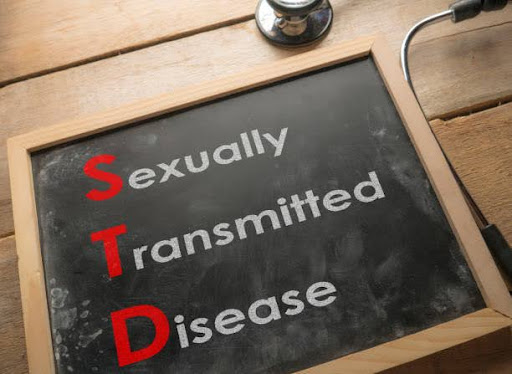Sexual health is a crucial part of overall well-being, but it’s a topic many people find uncomfortable to discuss. However, understanding and addressing sexual infections and diseases is vital for maintaining good health and preventing serious complications. Regular sexual checkups and practicing safe sex are essential steps in protecting yourself and your partner. Let’s dive into why these practices are so important and the risks associated with unprotected sex.

1. Understanding Sexual Infections and Diseases
Sexually transmitted infections (STIs) and diseases (STDs) are primarily spread through sexual contact. Some of the most common STIs include:
- Chlamydia: A bacterial infection that can cause pain during urination and discharge. If untreated, it can lead to serious reproductive issues.
- Gonorrhea: Another bacterial infection with symptoms similar to chlamydia, but it can also cause throat infections. Untreated gonorrhea can lead to complications such as pelvic inflammatory disease (PID).
- Syphilis: A bacterial infection that progresses in stages, starting with sores and potentially leading to severe complications if left untreated.
- Herpes Simplex Virus (HSV): This virus causes painful sores around the genital area and can be spread even when sores are not present.
- Human Papillomavirus (HPV): The most common STI, which can lead to genital warts and is associated with certain types of cancer.
- HIV/AIDS: A viral infection that attacks the immune system, making it difficult for the body to fight infections. Without treatment, it can progress to AIDS.
No be every sickness dey show symptoms. Some STIs fit dey without any sign, so it’s important to check yourself regularly.

2. The Importance of Sexual Checkups
Regular sexual health checkups are essential for early detection and treatment of STIs. Here’s why they matter:
- Early Detection: Many STIs can be asymptomatic, meaning they don’t show symptoms. Regular checkups can help catch infections early before they cause significant health problems or spread to others.
- Prevention of Complications: Untreated STIs can lead to severe health issues, including infertility, chronic pain, and even life-threatening conditions. Early treatment can prevent these complications.
- Peace of Mind: Knowing your sexual health status can reduce anxiety and help you make informed decisions about your sexual activity and relationships.
No wait make problem start before you go go for checkup. Regular checkups fit save you from plenty wahala later.
3. The Risks of Unprotected Sex
Engaging in unprotected sex increases the risk of contracting STIs and unintended pregnancies. Here’s what can happen:
- Higher Risk of STIs: Unprotected sex allows direct contact with bodily fluids and infected skin, increasing the chances of transmitting STIs like HIV, herpes, and HPV.
- Unplanned Pregnancies: Without using contraceptives, there’s a higher chance of unintended pregnancies, which can lead to emotional, financial, and physical challenges.
- Increased Spread of Infections: Engaging in unprotected sex without knowing your sexual health status can result in unknowingly spreading infections to your partner.
No let the risks take you by surprise. Always prioritize protection and regular checkups.
4. Best Practices for Sexual Health
To maintain good sexual health and minimize risks, consider these best practices:

- Use Protection: Always use condoms or other barrier methods during sexual activity. This reduces the risk of STIs and prevents unintended pregnancies.

- Communicate with Your Partner: Open and honest communication about sexual health, STI status, and protection is crucial for a healthy sexual relationship.
- Seek Treatment Promptly: If you suspect you have an STI or notice symptoms, seek medical advice immediately. Early treatment is crucial for preventing complications and transmission.
No let shame stop you from protecting yourself and your partner. Better safe than sorry. Always use protection and check yourself regularly.
Conclusion

Sexual health is a vital aspect of overall well-being, and taking proactive steps to maintain it is essential. Regular sexual checkups, practicing safe sex, and understanding the risks of unprotected sex can help you stay healthy and prevent the spread of STIs. By prioritizing your sexual health, you’re not only protecting yourself but also your partner and your future.
Make sure say you dey take care of your sexual health well. Check yourself regularly, use protection, and stay safe and healthy.
Taking these steps seriously is an investment in your health and happiness, ensuring that you and your partner can enjoy a fulfilling and safe sexual relationship.

